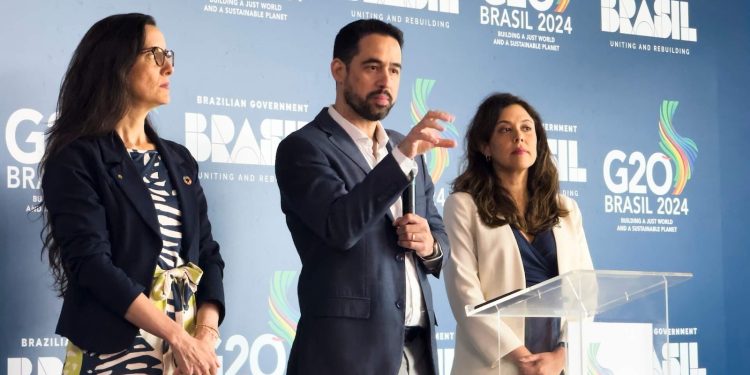Md Hasanur Rahman Tanzir – G20 country technicians reached an agreement on Brasil’s priority of facilitating access to Climate Funds, particularly for small and medium-sized economies. This issue was a key objective of the Sustainable Finance working group, which convened this week in Belém, the capital of the state of Pará. The proposal received “excellent support” and garnered several recommendations for its implementation in the coming months.
“We have the endorsement of the G20 and a clear direction on how to implement these recommendations, ensuring that resources from these Funds actually reach the intended accounts. The same applies to our second priority, a matter very dear to Brasil: ecological transition plans must be fair,” said Ivan Oliveira, coordinator of the Working Group and Undersecretary for Financing Sustainable Development at the Brazilian Ministry of Finance.
According to Oliveira, the G20 will aim to ensure that the funds’ resources reach their intended destinations and that several currently stalled initiatives can progress due to lack of funding. “This agenda connects Brasil with other developing countries, particularly several smaller nations that also need access to these funds to finance their transitions,” said the economist.
The WG coordinator added that the G20 deliberations emphasized that, in the coming years, Green Funds will play a significant role in economies, aiding in the implementation of fair transition plans. These discussions also focused on reassessing how these mechanisms allocate funds to nations and highlighting opportunities to strengthen these financial flows.
“There is a need for more organized, strategic initiatives that align with the needs and interests of developing nations, in line with each fund’s objectives. The aim is not to overhaul governance procedures, but rather to prioritize and fund what is truly crucial for the developing countries,” concluded Oliveira.
Nature-based solutions :Belém’s selection to host the group’s third meeting was deliberate. The city, set to host COP 30 (UN Framework Convention on Climate Change) in 2025, is a hub for initiatives and nature-based solutions addressing the climate crisis. These efforts are closely tied to the traditional knowledge of local communities, as highlighted by Lívia Oliveira, general coordinator of the Ministry of Finance’s Sustainable Finance Undersecretariat.
“The entire Amazon region presents vast potential for developing nature-based solutions, such as responsible forest preservation, provided they are maintained responsibly. By doing so, we can sequester greenhouse gas emissions and contribute effectively to combating climate change. The entire bioeconomy chain can serve as a critical tool for implementing these solutions. The dialogue around this issue must advance substantially, with Brasil standing as both an exemplar and a key part of the solution,” she emphasized.
Sustainable companies: The G20 has made strides in sharing expertise to implement global sustainability standards, crucial for enabling firms, especially small and medium-sized enterprises in developing nations, to access finance and attract investments. Cyntia Azevedo, Deputy Head of the International Affairs Department at the Banco Central do Brasil (BCB), highlighted the G20’s pivotal role in addressing this challenge. “We draw on experiences from other countries, which is crucial for mutual learning and enhancing our practices,” she emphasized to the audience.



















